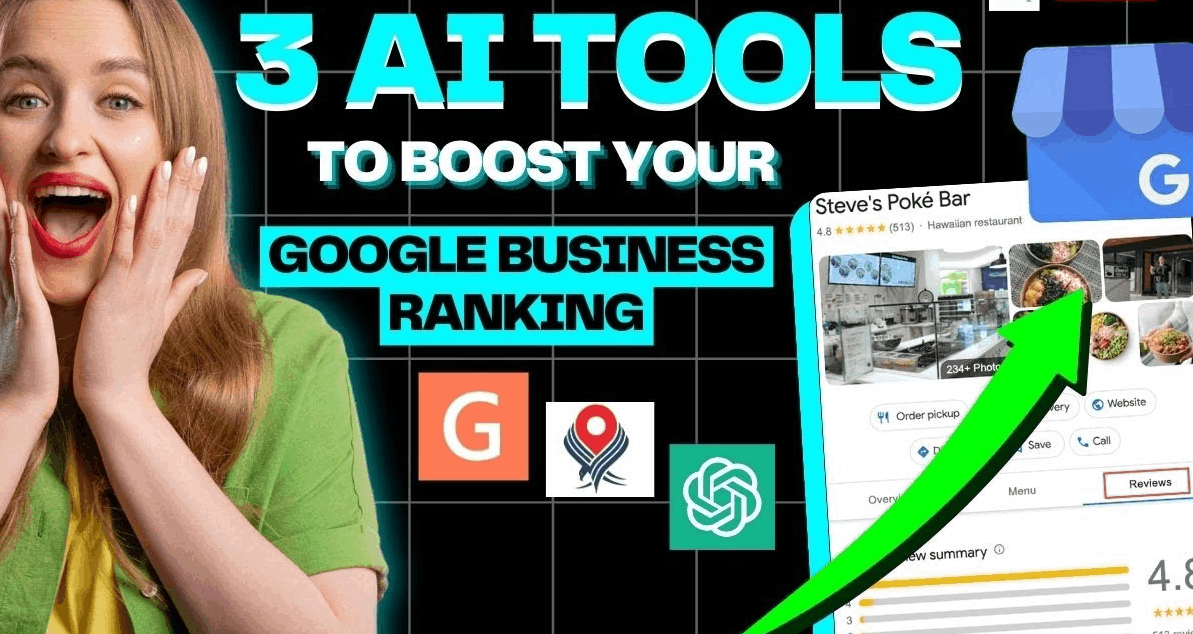The way people search for local businesses is rapidly evolving. With AI-powered platforms like ChatGPT, Google’s AI Overviews, and voice assistants gaining popularity, local SEO now demands smarter, faster, and more personalized tactics. To stay visible and competitive, businesses must embrace AI to scale their SEO strategies and connect with nearby customers in meaningful ways.
Let’s explore four AI-driven methods to elevate your local search presence.
1. Unlock Local Search Intent with AI-Enhanced Keyword Research
Today’s search behavior leans heavily toward long-tail, high-intent queries—think “same-day AC repair downtown Chicago” or “best Thai takeout near Union Square.”
With AI-powered keyword tools, businesses can:
-
Discover hyper-specific, location-based search terms.
-
Segment keywords by search intent—navigational, transactional, or informational.
-
Analyze competitors and content gaps to prioritize what to target next.
These insights empower you to create content that directly answers what local users are looking for—when they need it most.
2. Supercharge Your Google Business Profile with AI Tools
Your Google Business Profile (GBP) is the heart of your local SEO strategy. AI can now help optimize this critical asset more efficiently than ever.
Here’s how:
-
Generate engaging business descriptions and weekly updates with AI writing assistants tailored to local search phrases.
-
Respond to customer reviews using AI-driven sentiment analysis, which suggests thoughtful replies that align with your brand tone.
-
Spot trends in customer feedback, allowing you to improve service and address concerns before they go viral.
An actively managed GBP builds trust with both customers and search engines—boosting visibility in local packs and map listings.

3. Automate Citation Audits and Fixes with AI
Consistency across directories is crucial in local SEO. Your Name, Address, and Phone (NAP) must match everywhere. But manually checking every listing? Tedious.
That’s where AI comes in:
-
Scan the web for NAP inconsistencies, prioritizing high-authority sites like Yelp, Apple Maps, and Bing Places.
-
Fix outdated or incorrect data at scale, saving time while protecting your rankings.
-
Identify niche-specific or local directories that drive actual traffic, not just noise.
AI helps ensure your business info is always up to date—without the headache.
4. Create Hyperlocal Content at Scale
Local content is what bridges the gap between your business and your community. AI makes it easy to generate articles, blog posts, or FAQs tailored to neighborhoods, events, and even weather patterns.
Try prompts like:
-
“What to know before booking [service] during winter in [city].”
-
“Top 3 overlooked services people in [neighborhood] need before moving.”
-
“Seasonal checklist for residents of [zip code].”
You can also personalize tone, imagery, and call-to-actions based on local preferences, ensuring your message hits home every time.
The Bottom Line: AI Enhances, Not Replaces, Local SEO
AI isn’t about replacing traditional SEO—it’s about enhancing it with speed, precision, and local relevance. By integrating AI into your local marketing strategy, you can:
-
Identify valuable, local-focused search terms.
-
Keep your business listings fresh and engaging.
-
Maintain citation accuracy across the web.
-
Publish content that resonates with your nearby audience.
In a world where more users ask AI for local recommendations, using AI to improve your local SEO isn’t optional—it’s essential.
🔍 1. AI Tools for Local Keyword Research
Goal: Discover long-tail, location-specific keywords with real intent.
✅ Recommended Tools:
-
Semrush (Keyword Magic Tool + Position Tracking)
-
Offers location-specific keyword data and competitive analysis.
-
Great for clustering keywords by intent.
-
-
-
Uses AI to suggest keywords based on SERP analysis.
-
Works well for optimizing content around local queries.
-
-
ChatGPT (with Advanced Data Analysis / Code Interpreter)
-
You can use prompts like:
“List 25 long-tail keywords for a dentist in Austin, TX focusing on emergency services.”
-
🏪 2. AI Tools for Optimizing Google Business Profile (GBP)
Goal: Improve engagement, visibility, and customer trust through better listings and review management.
✅ Recommended Tools:
-
-
Helps manage and optimize GBP, post updates, and monitor rankings.
-
-
-
Offers GBP audit, citation building, and local rank tracking.
-
-
-
Automates review responses using AI sentiment analysis.
-
Generates personalized and on-brand replies for customer reviews.
-
-
-
Example prompt:
“Write a 5-star review response for a bakery in Portland that delivered a last-minute birthday cake.”
-
🧾 3. AI-Powered Citation Management Tools
Goal: Audit and fix your business listings across directories to ensure NAP consistency.
✅ Recommended Tools:
-
-
Distributes and syncs your business data across 100+ platforms.
-
Offers AI-powered duplicate suppression and listing health analysis.
-
-
-
Automates citation management and flags inconsistencies.
-
Monitors local rankings and reviews.
-
-
-
Uses AI to detect errors and offers suggestions for data corrections.
-
These tools integrate well with GBP, Facebook, Yelp, Apple Maps, and other local platforms.
📝 4. AI Tools for Generating Hyperlocal Content
Goal: Create scalable, personalized content that resonates with local audiences.
✅ Recommended Tools:
-
-
Tailored templates for local blog posts, service pages, and FAQs.
-
Example prompt:
“Create a blog post titled ‘5 Must-Know Plumbing Tips for Homeowners in Miami, FL.'”
-
-
-
Pair them to generate SEO-optimized content that ranks well in local SERPs.
-
-
ChatGPT (with location-specific prompts)
-
Prompt example:
“Write a social media caption promoting an HVAC company’s summer discount in Phoenix, AZ.”
-
-
-
AI writing + content briefs with a focus on local SERP competitors.
-
Great for location-based landing pages.
-
Bonus Tool for AI-Powered Insights:
-
Google Gemini (AI Overviews)
Test your business’s visibility in AI-generated answers on Google. Optimize your site and GBP to appear in those AI summaries.